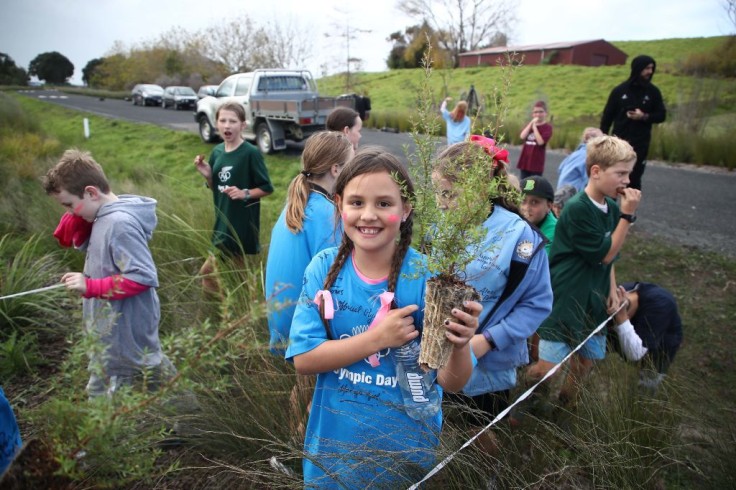
In an age of digital distractions and rapid environmental changes, a shift in parenting styles has emerged.
"Green parenting" is not just a buzzword; it's a commitment to raising the next generation with an acute awareness of their environment.
This article delves into the heart of nurturing nature and provides guidelines on raising an eco-friendly child in today's world.
Ways To Raising Sustainable Kids
1. Begin at Home: The Roots of an Eco-Friendly Child
Every lesson begins at home. It's where our habits are first formed, and our values are primarily instilled. If you're venturing into green parenting, it's crucial to practice what you preach. Create a home environment that reflects sustainable living. By doing so, you are taking the first steps in raising sustainable kids.
Reduce, reuse, and recycle. Let these principles guide household operations.
Invest in eco-friendly products, from biodegradable cleaning agents to energy-saving appliances.
Incorporate nature into your home. Whether it's houseplants or natural decor, make nature a focal point.
2. Engage Them Early: Cultivating Awareness
An eco-friendly child is one who understands the why behind the what. Nurturing nature starts by engaging children in age-appropriate discussions about the environment.
Educate them about wildlife, habitats, and ecosystems. Let them know why forests are essential and why oceans need to remain clean.
Watch nature documentaries together. These can spark interest and curiosity.
Discuss current environmental issues and encourage them to ask questions.
3. Outdoor Adventures: Learning Through Experience
One of the pillars of green parenting is promoting direct experiences with nature. Regular exposure fosters a genuine love for the environment, which is essential for raising sustainable kids.
Plan nature walks, beach trips, or visits to conservation areas.
Encourage outdoor games. The more time children spend outdoors, the stronger their connection to nature.
Create a backyard garden. It's a hands-on way for children to learn about plants, ecosystems, and the importance of biodiversity.
4. Mindful Consumption: Teaching the Value of Resources
In our consumer-driven world, teaching children the value of resources is crucial. Nurturing nature means emphasizing the difference between needs and wants.
Foster a culture of upcycling. Transform waste or old items into something functional or decorative.
Introduce them to thrift shopping or exchanging toys and books with friends.
Discuss the concept of a carbon footprint. Make it a family goal to reduce yours.
Read Also: Creating a Positive Food Environment: 7 Toxic Phrases To Avoid When Raising Healthy Eaters
5. Lead by Example: Your Role in Green Parenting
Actions speak louder than words. An eco-friendly child is often the reflection of eco-conscious parents. By making sustainable choices, you naturally guide your child down the same path.
Show them how you compost kitchen waste, save water, or use public transport to reduce car emissions.
Encourage family activities that center around conservation, like tree planting or community clean-ups.
6. Cultivate Compassion: Guiding Them in Caring for Flora and Fauna
Introducing children to the world of plants and animals does more than teach them about biology-it fosters empathy and a sense of guardianship for the earth. Green parenting places emphasis not just on the larger ecosystem but also on the individual creatures that inhabit it.
Maintain a houseplant or a garden, and let your child take responsibility for its care. This not only imbues a sense of ownership but also educates them on the lifecycle and needs of plants.
Encourage interactions with animals. Whether it's adopting a pet, visiting an animal sanctuary, or simply observing animals in their natural habitat, these interactions shape an eco-friendly child's perspective on co-existing with other species.
Share stories and information about endangered species. Highlight the importance of conservation and the role each individual can play in preserving these species.
7. Behind the Scenes: Educating Them About Waste Management
A crucial aspect of raising sustainable kids is imparting knowledge about the aftermath of consumption-specifically, where our waste goes and its impact. A thorough understanding of waste disposal and its ecological repercussions can transform a child's approach to consumption and waste generation.
Organize visits to recycling centers or landfills. Real-life visuals can be impactful, driving home the point about the scale and implications of waste.
Explain the journey of trash. From the moment an item is discarded to its final destination, whether it's decomposing in a landfill or being repurposed through recycling.
Introduce the concept of the three Rs: Reduce, Reuse, and Recycle. Challenge them to come up with innovative ways to minimize waste, highlighting the essence of green parenting.
The path to nurturing nature in children is multi-faceted, encompassing lessons both big and small.
It's about the broader ecosystem and the singular creatures and plants within it. It's about understanding our resources and the traces we leave behind.
But above all, it's about ensuring that the eco-friendly child of today becomes the eco-conscious adult of tomorrow, carrying forward the values and practices of a sustainable life.